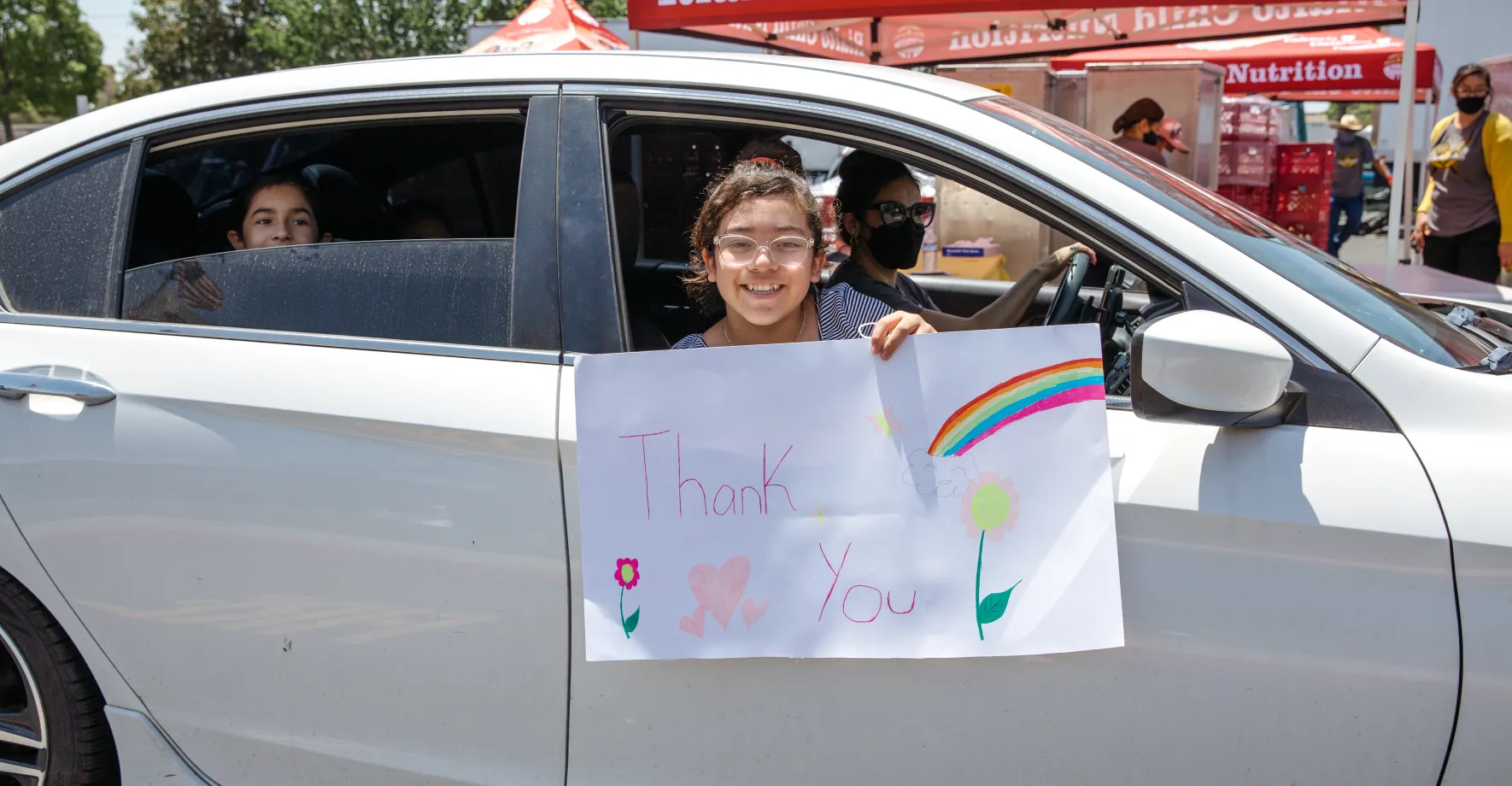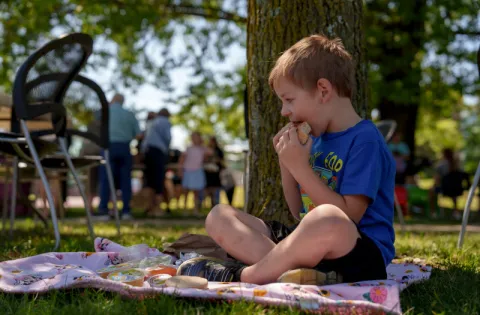Ending childhood hunger involves much more than “just” getting food to kids. No Kid Hungry provides grants to schools to support them in their efforts get healthy meals to kids wherever they are learning—in the classroom or at home. But funding alone isn’t enough.
Our staff provide myriad free resources and guidance, webinars, and peer-to-peer connections -- technical assistance that helps our nation’s dedicated school nutrition staff navigate the challenges the pandemic has created and magnified.

Every day, food service staff in Los Angeles, Orange, Riverside and San Bernardino counties in California come to work knowing that they are responsible for meal service to a student body of over 2.7 million children. To put it in perspective, this is more than the total student body of every state in the United States except California, Florida and Texas.
In the last two years, the challenges for these nutrition staff have been constant and unprecedented. From the uncertainty and health and safety dangers of the pandemic to ever-changing logistics; from destructive fires to staff shortages and supply chain disruptions, school nutrition staff have had to deal with it all and with no end in sight.
Even after putting their health on the line, losing colleagues to Covid, and working throughout building shutdowns and hybrid learning models that meant kids needed to get school meals at home and at school, nutrition staff continue to show up with a smile to ensure all children get the food they need to thrive.
“From the kids’ perspective, the show goes on,” said Robin Hernandez, school meals access manager for the No Kid Hungry campaign in California. “It has to go on. That’s the thing about nutrition professionals. They’re so dedicated, and they care about the kids so much that they pull off miracles every day.”
Their heroism and creativity cannot be overstated. That’s why the No Kid Hungry team in California is doing everything in their power to support them, providing crucial technical assistance, working to lift staff morale, and building community among them.
In California, No Kid Hungry and four Southern California public health collaboratives created the Quad County Collaborative (QCC), a regular (now online) convening where directors and leaders from school nutrition and area health department leaders representing the needs of the four counties can connect to exchange best practices and support and celebrate each other.
Their work together began during the coronavirus shut down out of a need to provide peer connection and support to school nutrition leaders during this extremely difficult time. Over the past two years, No Kid Hungry has held since several QCC webinars and convenings, where food service directors from 168 school districts have been able to sit down and share their challenges and exchange innovative ideas to reach as many kids as they can.
Hearing ideas and strategies from peers who know their struggles have produced a long list of tools and a range of successful approaches.
“We saw people add supper to their school meals program…We saw people consolidate to one box for five days, because it was more efficient for their budgets,” shared Daisy Munguia-Pinon from the No Kid Hungry California team. “We try to give practical ideas they can implement right away.”
QCC members continue to work their way down the list of practical solutions, including everything from the creating of food pantries to learning to navigate special waivers that the federal government put in place to serve meals for kids during the pandemic to adding supper service. All of these translate in full bellies for the children in California.
The QCC is also a platform for nutrition professionals to find connections in challenging times and find ways to lift the morale of their staff. They exchange ideas of best practices to support and celebrate the cafeteria and other school nutrition heroes.
To boost staff morale and retention, members have shared ways to manage staff more effectively and how to distribute tokens of appreciation like stipends, trophies, t-shirts, and holiday gift baskets.
Andrea Morey, a public health professional, and participant at the QCC recognized the importance of the platform the webinars create.
“I’ve been inspired by each of our partners, recognizing their determination and the joy they share in the pursuit of feeding children each day,” she shared.
Today, 1 in 6 kids could be living with hunger in the United States. At No Kid Hungry, we recognize the importance of supporting food service professionals in finding the best ways to feed children. Join us so, together, we can end childhood hunger.



